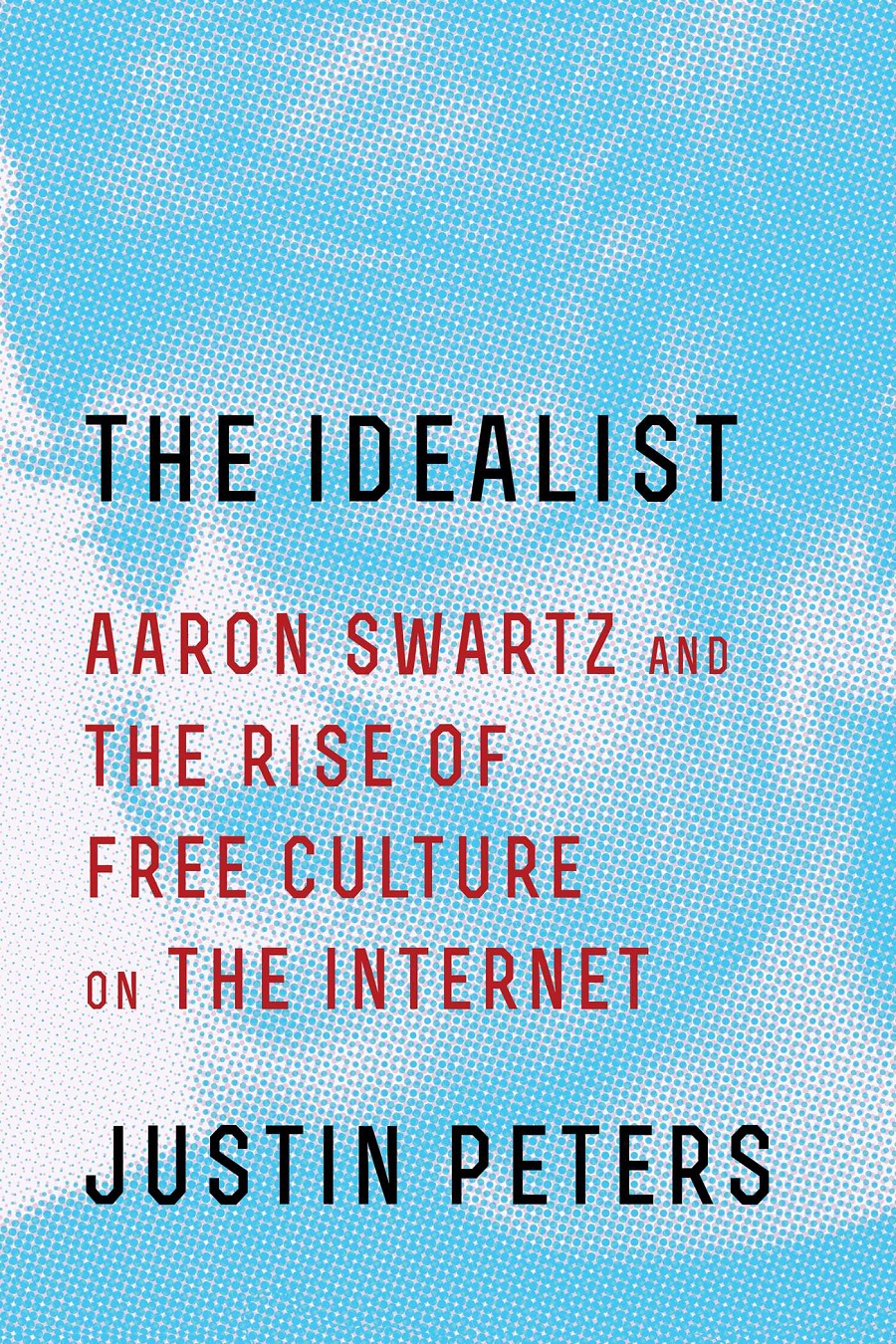BOOK REVIEW: The Boy Who Could Change the World
by Hannah Kuchler,
2016-03-04 05:00:00.0
THE saddest part of The Boy Who Could Change the World is the title, pointing as it does to a future that was cut short when Aaron Swartz died in 2013. Yet perhaps the "could" is not entirely out of place.
As this collection shows, Swartz left behind an impressive body of writing that still has the power to rally others behind his causes of freeing information, fighting corruption, and revolutionising government.
Swartz was an online prodigy who became famous in idealistic internet circles as a programmer, blogger and activist. Aged 13, he created his own version of Wikipedia months before the collaborative online encyclopedia was founded. His place in this world is neatly illustrated by a story about Tim Berners-Lee, the web pioneer, sharing his concerns about Swartz’s picky eating (stodgy white foods only) with the teenager’s mother at a conference.
In 2011, Swartz was indicted by federal prosecutors after attempting to download every academic journal in the online library Jstor. Facing a maximum penalty of 35 years in prison and $1m in fines, he took his own life aged 26. Swartz wrote on everything from online piracy to the failure of schools, arguing robustly and describing the world around him with a mixture of humour and cynicism. It is easy to see why he gained such a following so young: people met the blog before they met the kid behind it. Clear, well-read and sourced, Swartz is earnest without being irritating.
Introductions and postscripts to the thematically organised sections show how well-regarded — and loved — he was by those who knew him. Rebecca Sandefur, who taught Swartz during his brief time at Stanford, described his writing as "supremely confident, unpretentiously brilliant, sincerely engaged", while Henry Farrell, a political scientist who contributed to a blog alongside Swartz, says he was a "builder of bridges between many different people from many different worlds".
Swartz is best known for his work battling copyright, and his blogs on this subject occupy the first chunk of the book. It includes the Guerrilla Open Access Manifesto, advocating the sharing of information as a "moral imperative", which prosecutors intended to use as evidence that Swartz planned to distribute the Jstor articles online.
Some sections, such as the chapter called Computers, may be too acronym-filled for the general reader. At other times he can give the impression of being better on theory than on practice, such as in his proposals for "rebooting democracy" via Stephen Shalom’s system of "Parpolity", in which "nested councils" of 25-50 people send representatives up the chain, while maintaining face-to-face accountability.
But on reading his essay, How Congress Works, it is easy to believe that he could have changed the world — or at the very least written House of Cards. Delivered as a seminar at Harvard in 2011, it is a cutting primer on the complexity and corruption of US politics, from empty committees to lobbyists and the laws on serving appetisers. What is missing from The Boy Who Could Change the World is Swartz’s own story before and after his indictment that he called "the bad thing". For this, it is worth turning to a recently published biography of Swartz, The Idealist.
Here, Justin Peters tells the story of Swartz’s development from Chicago prodigy to celebrity hacktivist. He describes how Swartz was chased by police on the Massachusetts Institute of Technology campus after crashing Jstor, and how prosecutors later refused to drop the case — even when the library said it was not interested in pursuing Swartz.
Peters attempts to answer the hard questions: "How did academic research papers come to be considered private property, protected by law? How did accessing that material without explicit authorisation come to be a federal crime?"
To do this, he puts Swartz’s activities in the context of a long debate over the value of copyright, introducing the reader to characters who fought for and against the protection of intellectual property in the US from the 1880s.
© The Financial Times Limited 2016

Aaron Swartz, who took his own life in 2013, was a Chicago prodigy turned celebrity hacktivist who believed in freeing information, fighting corruption, and revolutionising government. Picture: REUTERS/ NOAH BERGER
THE saddest part of The Boy Who Could Change the World is the title, pointing as it does to a future that was cut short when Aaron Swartz died in 2013. Yet perhaps the "could" is not entirely out of place.
As this collection shows, Swartz left behind an impressive body of writing that still has the power to rally others behind his causes of freeing information, fighting corruption, and revolutionising government.
Swartz was an online prodigy who became famous in idealistic internet circles as a programmer, blogger and activist. Aged 13, he created his own version of Wikipedia months before the collaborative online encyclopedia was founded. His place in this world is neatly illustrated by a story about Tim Berners-Lee, the web pioneer, sharing his concerns about Swartz’s picky eating (stodgy white foods only) with the teenager’s mother at a conference.
In 2011, Swartz was indicted by federal prosecutors after attempting to download every academic journal in the online library Jstor. Facing a maximum penalty of 35 years in prison and $1m in fines, he took his own life aged 26. Swartz wrote on everything from online piracy to the failure of schools, arguing robustly and describing the world around him with a mixture of humour and cynicism. It is easy to see why he gained such a following so young: people met the blog before they met the kid behind it. Clear, well-read and sourced, Swartz is earnest without being irritating.
Introductions and postscripts to the thematically organised sections show how well-regarded — and loved — he was by those who knew him. Rebecca Sandefur, who taught Swartz during his brief time at Stanford, described his writing as "supremely confident, unpretentiously brilliant, sincerely engaged", while Henry Farrell, a political scientist who contributed to a blog alongside Swartz, says he was a "builder of bridges between many different people from many different worlds".
Swartz is best known for his work battling copyright, and his blogs on this subject occupy the first chunk of the book. It includes the Guerrilla Open Access Manifesto, advocating the sharing of information as a "moral imperative", which prosecutors intended to use as evidence that Swartz planned to distribute the Jstor articles online.
Some sections, such as the chapter called Computers, may be too acronym-filled for the general reader. At other times he can give the impression of being better on theory than on practice, such as in his proposals for "rebooting democracy" via Stephen Shalom’s system of "Parpolity", in which "nested councils" of 25-50 people send representatives up the chain, while maintaining face-to-face accountability.
But on reading his essay, How Congress Works, it is easy to believe that he could have changed the world — or at the very least written House of Cards. Delivered as a seminar at Harvard in 2011, it is a cutting primer on the complexity and corruption of US politics, from empty committees to lobbyists and the laws on serving appetisers. What is missing from The Boy Who Could Change the World is Swartz’s own story before and after his indictment that he called "the bad thing". For this, it is worth turning to a recently published biography of Swartz, The Idealist.
Here, Justin Peters tells the story of Swartz’s development from Chicago prodigy to celebrity hacktivist. He describes how Swartz was chased by police on the Massachusetts Institute of Technology campus after crashing Jstor, and how prosecutors later refused to drop the case — even when the library said it was not interested in pursuing Swartz.
Peters attempts to answer the hard questions: "How did academic research papers come to be considered private property, protected by law? How did accessing that material without explicit authorisation come to be a federal crime?"
To do this, he puts Swartz’s activities in the context of a long debate over the value of copyright, introducing the reader to characters who fought for and against the protection of intellectual property in the US from the 1880s.
© The Financial Times Limited 2016






















Change: 0.83%
Change: 0.93%
Change: 0.95%
Change: 0.73%
Change: 1.91%
Data supplied by Profile Data
Change: 0.58%
Change: 0.61%
Change: 0.83%
Change: 0.00%
Change: 0.70%
Data supplied by Profile Data
Change: -1.62%
Change: -0.85%
Change: -0.61%
Change: -1.00%
Change: -0.47%
Data supplied by Profile Data
Change: 2.44%
Change: 2.09%
Change: 2.36%
Change: 2.65%
Change: 3.44%
Data supplied by Profile Data